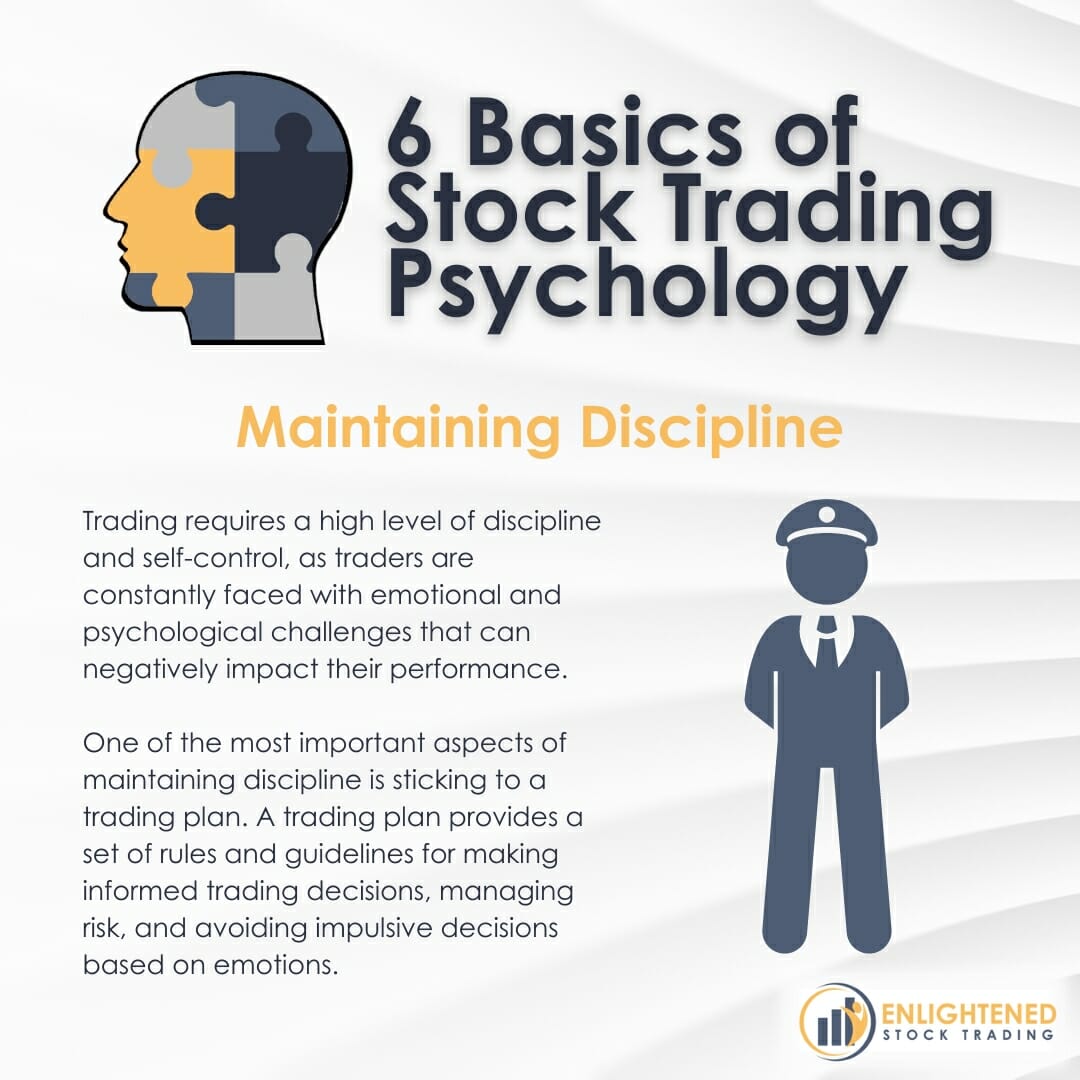Did you know that the average person makes around 35,000 decisions a day? For day traders, those decisions can mean the difference between profit and loss. In this article, we dive deep into the psychology behind day trading strategies, exploring the critical factors that influence trading success. We discuss how fear and discipline shape decision-making, the common psychological traps traders face, and the impact of cognitive biases on behavior. Additionally, we highlight essential mindsets for success, techniques for managing stress, and the importance of a solid trading plan. With insights on overcoming FOMO and enhancing focus, this guide equips you with the tools to master the mental aspects of trading, all thanks to DayTradingBusiness.
What psychological factors influence day trading success?
Key psychological factors influencing day trading success include emotional control, risk tolerance, discipline, and mindset. Emotional control helps traders manage fear and greed, preventing impulsive decisions. A strong risk tolerance allows traders to endure losses without deviating from their strategy. Discipline is crucial for sticking to a trading plan and avoiding overtrading. Lastly, a positive and resilient mindset fosters adaptability and learning from mistakes, which are vital for long-term success in day trading.
How does fear impact day trading decisions?
Fear can significantly impact day trading decisions by causing hesitation and second-guessing. Traders may avoid taking necessary risks, leading to missed opportunities. It can also trigger impulsive actions, like panic selling during market dips, resulting in losses. Overall, fear disrupts rational decision-making, making it essential for traders to develop strategies to manage this emotion effectively.
What role does discipline play in day trading?
Discipline is crucial in day trading because it helps traders stick to their strategies and avoid emotional decision-making. It ensures adherence to risk management rules, preventing impulsive trades that can lead to significant losses. A disciplined approach allows traders to execute their plans consistently, analyze market conditions objectively, and maintain patience during market fluctuations. This mindset is essential for long-term success in day trading.
How can emotions affect day trading strategies?
Emotions significantly impact day trading strategies by influencing decision-making, risk tolerance, and discipline. Fear can lead to impulsive selling during market dips, while greed may cause traders to hold onto losing positions too long. Overconfidence can result in taking excessive risks, while anxiety might prompt hesitance to enter trades. Recognizing these emotional triggers and implementing strategies like setting predefined stop-loss orders and maintaining a trading journal can help mitigate their effects, leading to more rational and disciplined trading decisions.
What psychological traps do day traders commonly fall into?

Day traders commonly fall into several psychological traps:
1. Overconfidence: Believing they can predict market movements leads to risky trades.
2. Loss Aversion: Fear of losing prompts them to hold onto losing positions too long instead of cutting losses.
3. Confirmation Bias: Only seeking information that supports their trades, ignoring contrary evidence.
4. Chasing Losses: Trying to recover lost money quickly can lead to impulsive decisions.
5. FOMO (Fear of Missing Out): Entering trades based on hype rather than analysis can result in poor outcomes.
6. Emotional Trading: Letting emotions drive decisions instead of following a disciplined strategy.
Recognizing these traps is essential for improving day trading strategies.
How do cognitive biases influence trading behavior?
Cognitive biases significantly impact trading behavior by skewing decision-making. For instance, confirmation bias leads traders to favor information that supports their existing beliefs, causing them to overlook contrary data. Loss aversion makes them more sensitive to losses than equivalent gains, prompting them to hold losing positions longer. Anchoring bias can cause traders to fixate on specific price points, influencing their buy or sell decisions. Overconfidence can lead to excessive risk-taking, as traders overestimate their knowledge and abilities. These biases can result in irrational decisions, ultimately affecting trading performance and strategy effectiveness.
What mindset is essential for successful day trading?
The essential mindset for successful day trading includes discipline, patience, and emotional control. You need to stick to your trading plan and avoid impulsive decisions. Cultivating resilience helps you handle losses without affecting your strategy. Staying focused and maintaining a positive attitude boosts your confidence and clarity when analyzing the market. Lastly, continuous learning and adaptability are crucial for responding to market changes effectively.
How can day traders manage stress effectively?
Day traders can manage stress effectively by implementing a few key strategies. First, develop a solid trading plan with clear goals and risk management rules. This reduces uncertainty and helps maintain focus. Second, practice mindfulness techniques, such as meditation or deep-breathing exercises, to stay centered during volatile market conditions. Third, take regular breaks to avoid burnout; stepping away from the screen can refresh your mindset. Fourth, maintain a healthy lifestyle with proper nutrition, exercise, and sleep to support mental clarity. Lastly, connect with other traders to share experiences and strategies, which can provide emotional support and reduce isolation.
What techniques improve emotional resilience in trading?
To improve emotional resilience in trading, consider these techniques:
1. Mindfulness Practices: Incorporate meditation or deep-breathing exercises to stay present and manage stress during trades.
2. Set Clear Goals: Define specific, achievable trading goals to maintain focus and reduce emotional reactions to market fluctuations.
3. Develop a Trading Plan: Create and stick to a well-thought-out trading strategy to minimize impulsive decisions driven by emotions.
4. Emotional Journaling: Keep a journal of your trades and emotions to identify patterns and triggers, helping you learn from experiences.
5. Regular Breaks: Take breaks to prevent burnout and maintain a clear mindset, especially after significant losses or gains.
6. Practice Self-Compassion: Be kind to yourself after mistakes. Recognize that losses are part of trading and an opportunity for growth.
7. Limit Exposure: Control the amount of capital you risk on each trade to reduce anxiety and fear of loss.
8. Visualize Success: Use visualization techniques to imagine positive outcomes, enhancing confidence and emotional stability.
Implementing these techniques fosters a stronger emotional foundation, crucial for effective trading.
How does confidence shape day trading performance?
Confidence significantly influences day trading performance by affecting decision-making and risk tolerance. When traders feel confident, they are more likely to execute their strategies effectively, stick to their trading plans, and manage risks appropriately. High confidence can lead to better trade execution and quicker reactions to market changes. Conversely, a lack of confidence may result in hesitation, second-guessing trades, and missed opportunities. Building confidence through practice, research, and developing a solid trading strategy can lead to improved outcomes in day trading.
Learn about How Do Prop Firms Evaluate Day Trading Performance?
What is the importance of a trading plan in psychology?

A trading plan is crucial in day trading psychology because it provides structure and discipline. It helps traders manage emotions like fear and greed, reducing impulsive decisions. A clear plan outlines entry and exit strategies, risk management, and performance evaluation, which builds confidence. This consistency fosters a mindset focused on long-term success rather than short-term losses. Ultimately, a solid trading plan aligns psychological preparedness with strategic execution, enhancing overall trading performance.
How can traders overcome the fear of missing out (FOMO)?
Traders can overcome FOMO by sticking to a well-defined trading plan that includes clear entry and exit rules. Practicing mindfulness helps in recognizing emotional triggers and reducing impulsive decisions. Setting realistic goals and focusing on long-term performance, rather than short-term gains, can also diminish FOMO. Additionally, keeping a trading journal to reflect on past decisions reinforces discipline and highlights the consequences of chasing trends. Lastly, regularly reviewing and adjusting strategies can build confidence and reduce the fear of missing out on opportunities.
Learn about How Can Traders Overcome Fear of Missing Out?
How Can Beginners Master the Psychology Behind Day Trading Strategies?
Understanding the psychology of day trading strategies involves recognizing emotions like fear and greed, which can impact decision-making. Successful day traders develop discipline, manage risk, and stick to their trading plans. They also practice self-awareness to avoid impulsive trades and maintain a focused mindset.
Learn more about: Day Trading Strategies for Beginners
Learn about How Do Prop Firms Affect Day Trading Strategies?
What strategies help maintain focus during trading hours?

1. Set clear goals for each trading session to stay motivated and focused on your objectives.
2. Create a structured trading plan that outlines your entry and exit strategies, reducing indecision.
3. Limit distractions by creating a dedicated trading environment, free from noise and interruptions.
4. Use timers or the Pomodoro technique to work in focused intervals, followed by short breaks.
5. Practice mindfulness or meditation to enhance your concentration and manage stress during volatile markets.
6. Keep a trading journal to reflect on your decisions, reinforcing focus on your strategies.
7. Stay hydrated and maintain healthy snacks nearby to keep energy levels up.
8. Avoid multitasking; focus on one trade at a time to improve decision-making quality.
9. Set specific times to check news and updates, preventing constant distractions from market movements.
10. Regularly review and adjust your strategies based on performance to stay engaged and focused on improvement.
How does self-reflection enhance day trading skills?
Self-reflection enhances day trading skills by allowing traders to analyze their decisions and emotional responses. By reviewing past trades, traders identify patterns in their behavior, recognizing what works and what doesn’t. This process helps in developing discipline, managing emotions like fear and greed, and refining strategies. It also fosters a growth mindset, encouraging continuous improvement and adaptation to market changes. Ultimately, self-reflection leads to better decision-making and increased profitability in day trading.
Learn about What Are Prop Firms and How Can They Enhance Your Day Trading Edge?
What are the psychological benefits of journaling in trading?
Journaling in trading offers several psychological benefits:
1. Self-Reflection: It helps traders analyze their emotions and reactions during trades, fostering self-awareness and improving decision-making.
2. Stress Reduction: Writing about experiences can alleviate anxiety and frustration, providing a mental outlet.
3. Pattern Recognition: By documenting trades, traders identify recurring mistakes or successful strategies, enhancing future performance.
4. Emotional Regulation: Journaling helps manage emotions like fear and greed, promoting a more disciplined trading approach.
5. Confidence Building: Tracking progress and successes boosts confidence and reinforces positive behaviors.
6. Goal Setting: It encourages setting clear, achievable goals, aligning actions with long-term trading strategies.
Overall, journaling enhances mental clarity, emotional control, and strategic thinking in trading.
How can visualization techniques improve trading outcomes?
Visualization techniques can enhance trading outcomes by helping traders mentally rehearse strategies, reduce anxiety, and improve focus. By visualizing successful trades, traders reinforce confidence and clarify their decision-making processes. This mental imagery can also assist in anticipating market movements, allowing for quicker reactions. Additionally, visualizing potential risks and outcomes prepares traders for various scenarios, leading to more disciplined and informed trading actions. Overall, these techniques foster a positive mindset and better emotional regulation, crucial for effective day trading.
Conclusion about Understanding the Psychology of Day Trading Strategies
Mastering the psychology of day trading is crucial for success. Understanding emotional influences, managing fear, and developing discipline can significantly enhance trading performance. By recognizing common psychological traps and employing strategies like journaling and visualization, traders can build resilience and maintain focus. Ultimately, a strong mental framework, supported by a well-structured trading plan, empowers day traders to navigate the markets effectively. DayTradingBusiness is here to help you refine these skills and elevate your trading journey.
Learn about Understanding Day Trading Arbitrage Strategies
Sources:
- A Profitable Day Trading Strategy For The U.S. Equity Market by ...
- Can Day Trading Really Be Profitable? by Carlo Zarattini, Andrew ...
- Volume Weighted Average Price (VWAP) The Holy Grail for Day ...
- Automated Cryptocurrency Trading Approach Using Ensemble ...
- The Psychology and Neuroscience of Financial Decision Making ...